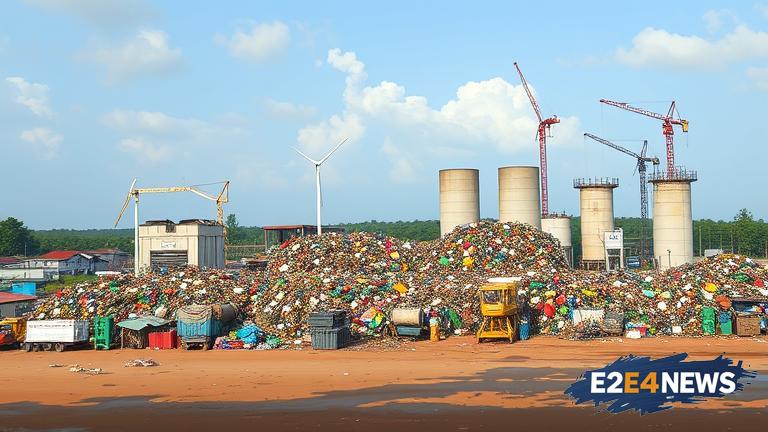In a bid to address the escalating waste management crisis in Indonesia, President Prabowo has ordered an 18-month deadline for the completion of a waste-to-energy project. This ambitious initiative aims to convert waste into a viable source of energy, thereby reducing the country’s reliance on fossil fuels and mitigating the environmental impact of waste disposal. The project is expected to play a crucial role in tackling Indonesia’s growing waste management issues, which have become a major concern for the government and citizens alike. With the country’s waste generation projected to increase exponentially, the need for innovative solutions has become more pressing than ever. The waste-to-energy project is anticipated to not only reduce waste but also generate electricity, creating a sustainable and environmentally friendly alternative to traditional energy sources. The 18-month deadline set by President Prabowo underscores the urgency of the situation and the government’s commitment to finding a solution. The project is expected to involve the collaboration of various stakeholders, including government agencies, private companies, and local communities. The Indonesian government has identified several locations for the project, including major cities and urban areas where waste management is a significant challenge. The waste-to-energy project is also expected to create new job opportunities and stimulate local economic growth. Furthermore, the project will help reduce greenhouse gas emissions and contribute to Indonesia’s efforts to mitigate climate change. The use of advanced technologies, such as incineration and gasification, is expected to play a key role in the project’s success. The government has also announced plans to implement a waste sorting and recycling program, which will help increase the efficiency of the waste-to-energy process. The project’s progress will be closely monitored by the government, with regular assessments and evaluations to ensure that the deadline is met. The Indonesian public has welcomed the initiative, with many expressing hope that the project will bring about a significant improvement in the country’s waste management situation. However, some have also raised concerns about the potential environmental and health impacts of the project, highlighting the need for careful planning and implementation. The government has assured citizens that the project will be designed and implemented with the utmost care for the environment and public health. As Indonesia continues to grapple with the challenges of waste management, the success of the waste-to-energy project will be closely watched by the international community. The project’s outcome is expected to have significant implications for the country’s environmental and energy policies, as well as its ability to meet its sustainable development goals. In conclusion, the waste-to-energy project is a critical initiative that has the potential to transform Indonesia’s waste management landscape and contribute to a more sustainable and environmentally friendly future. With the 18-month deadline in place, the government and stakeholders must work together to ensure the project’s success and create a better future for the Indonesian people.
